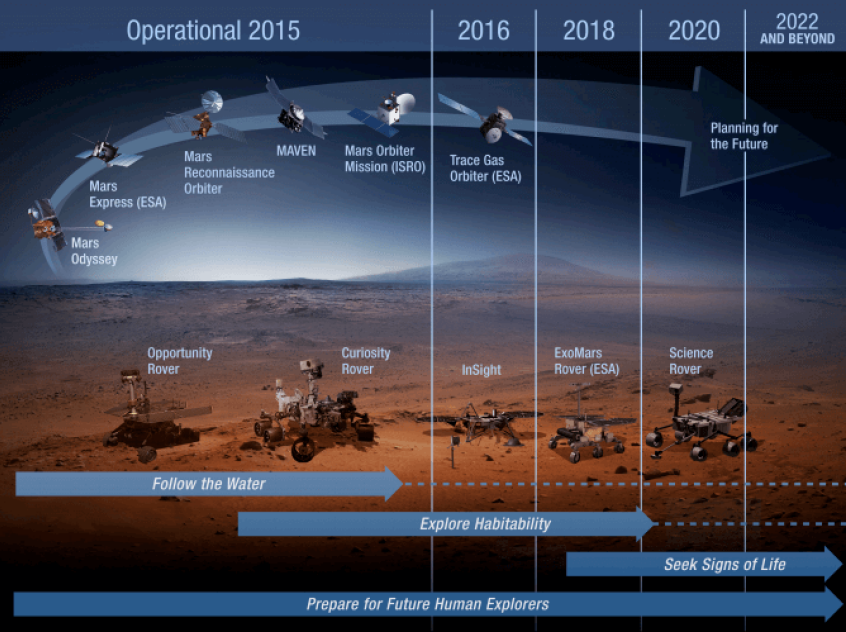
After captivating the world early this year with the discovery of traces of liquid water on Mars, the National Aeronautics and Space Administration (NASA) announced that it has suffered a setback in its efforts to further explore Earth's neighbouring planet.
A leaky instrument that may not hold up to the harsh conditions on Mars has prompted the space agency to cancel its InSight (short for Interior Exploration using Seismic Investigations, Geodesy and Heat Transport) mission to the Red Planet next year.
In an interview with CNN, Bruce Banerdt, InSight's principal investigator at the Jet Propulsion Laboratory, said the instrument that was to be used for the Mars exploration failed to hold a vacuum when subjected to extremely low temperature.
The instrument requires a vacuum seal around its three main sensors to protect it from the unfavourable conditions on Mars.
"The vacuum issue is the only thing that was standing between us and launch," Banerdt said.
The NASA official said this matter can easily be fixed in just a couple of months.
"We do not believe that this is a fundamentally difficult problem, given enough time to systematically investigate and resolve it. The French space agency estimates that a handful of months should suffice," he explained.
Banerdt, however, said to make sure that the instrument is fully ready, and due to the fact that the 2016 launch window closes on March 30, the next Mars mission may have to be deferred to 2018.
"We will probably take a little longer to make sure there aren't any further subtle problems hiding in the wings," he said.
"Everything else about the mission is ready to go, and we are already starting to work toward the possibility of continuing on to Mars at the next orbital opportunity in 2018," he added.
The space researcher nevertheless admitted that his team felt a little letdown when they learned that the next Mars mission will most likely not push through in 2016.
"The whole project team has been giving it everything they've got for many months to try to make this launch opportunity, so we are understandably disappointed," he told CNN.
















